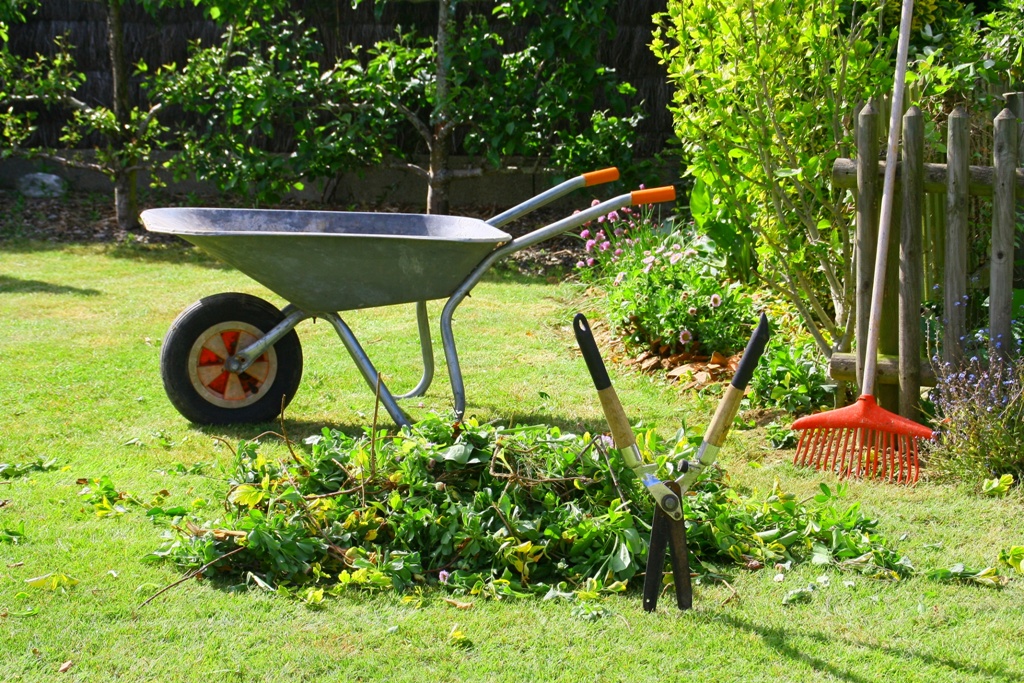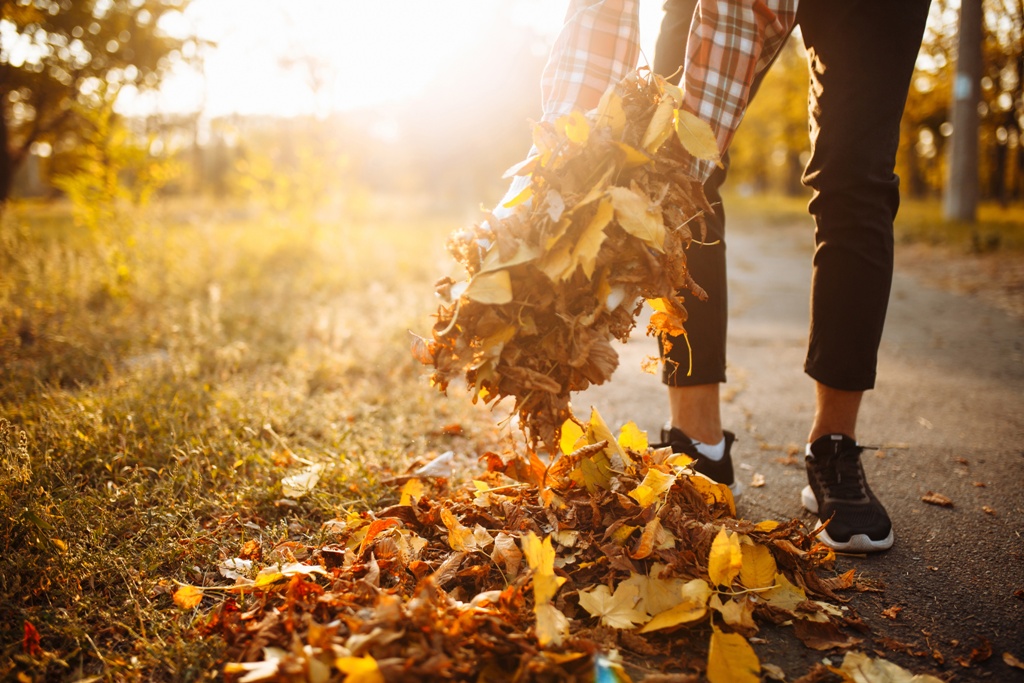Having a garden is a great feature to have in your house. You can have flowering shrubs, small fruit trees, a collection of succulents, decorative hanging plants, or even an herb garden. Imagine seeing this bountiful garden grow into beautiful greenery in the best way you’ve imagined. You’ll be proud of the outcome after a few weeks or months as it has grown entirely under your care. Now, wouldn’t it be terrible if such a beautiful and pleasant garden would be overcome with trash?
Being a responsible garden owner doesn’t mean you need to be a seasoned or veteran horticulturist. Any homeowner who loves taking care of greenery could grow the best plants and flowers, just like the experts. But you also need to make sure that the whole garden—not just the plants in it—is always in tip-top shape. You can help maintain your garden to be in the best condition by disposing of waste properly.
Ways to Dispose of Garden Waste
Disposing of your garden waste might be challenging, especially since they’re different from your household’s usual rubbish. When it comes to throwing them away, make sure to separate them from your household waste for proper sorting. You can follow a green rubbish disposal guide to dispose of green waste properly.
Here are a few ideas from those guides:
1. Composting
Compost is an organic material created from green waste produced at home. Compost helps your garden by adding nutrients to the soil. Wouldn’t it be amazing if the trash in your garden can make your yard healthier and better? It’s a way to recycle your waste into something useful and beneficial.
To create your compost, you could do the following steps:
-
Identify What You Can and Cannot compost
You cannot keep every food and green waste that you produce in a bin. You need to identify what you can and cannot compost as some ‘ingredients’ might harm the compost’s quality, defeating its purpose.
| You Can Compost | You Cannot Compost |
| Fruit scraps | Meat |
| Vegetable scraps | Oil and grease |
| Grass and plant clippings | Fat |
| Dry leaves | Diseased plant |
| Finely chopped bark and wood chips | Dog or cat feces |
| Sawdust from untreated wood | Dairy products |
| Coffee grounds | Chips or sawdust from pressure-treated wood |
| Shredded newspaper |
With this guide, you would know what trashed items you should and shouldn’t add to your compost bin for a proper composting process.
-
Combine Brown and Green Materials
Before combining every scrap and clipping in your home, ensure that you have enough to gather at least three feet’s worth of pile to transform into compost. You can combine the brown materials and the green materials for this purpose.
Brown materials include dry and brown items. This is where your dried garden waste falls, including shredded tree branches, rotten flowers or fruits, and fallen leaves. You can also include shredded newspaper, cardboard, hay, and straw in the mix. Make sure that everything is dry for your brown materials, though, as they add carbon to your compost.
Green materials include every wet and food scrap. This is where you add your food wastes, animal manures (except cats and dogs), and coffee grounds. Green materials add nitrogen to your compost.
When mixing the two materials, make sure you fill three parts of the bin with brown and one part with green. You may want to avoid having a wet compost as it won’t ‘mature’ well and will give a strong unpleasant smell. The goal is to make the compost slightly moist. So, add in materials needed to achieve the desired texture.
-
Water Your Pile
After you’ve successfully mixed the right amount of green and brown materials into your compost bin, you should sprinkle water over your pile regularly to retain its moisture. It should look and feel like a damp sponge. However, be careful with over-watering your compost as excessive water can drown them, making your pile rot instead of compost.
-
Monitor the Temperature
To ensure that your pile is composting and not rotting, you should frequently check the temperature regularly. You can check the temperature using a thermometer to ensure that the compost gets enough warmth and isn’t getting too hot or cold. When your compost is too hot, it might cause healthy microorganisms to die, eliminating the compost’s nutrient benefits.
-
Stir Your Pile
Your pile needs to breathe, too. To provide enough oxygen for your compost, you should stir it with a garden fork at least once a week.
The best time to stir your pile is when the center is warm enough or reaches between 130° and 150° Fahrenheit. This will help ‘cook’ your compost faster and prevent it from being dragged down to cause awful odor.
-
Feed Your Garden
If the compost doesn’t give off heat anymore and is fully dry, crumbly, and brown, it’s fully cooked and ready to give your garden the nutrition it needs.
To feed your garden, you should start adding the compost at the beginning of the planting season. You should add about four to six inches of compost on top of your soil to allow the nutrition to be absorbed immediately. Ideally, you should feed your plants from the first time you plant them to get the most nutrients they need.
Some gardeners maximize their compost by converting it into a homemade organic liquid fertilizer. You can do this by allowing the compost to steep in the water for a few days, creating a compost tea. Once done, strain the compost away and use the water to tend to your garden.

2. Use a Skip Bin
If composting has never been your friend and it ends up rotting even if you diligently did every step, you might want to try a skip bin instead, like those seen in https://mobileskips.com.au/brisbane and similar sites.
A skip bin, or more commonly known as the dumpster, is a huge contraption you can rent from service providers in your area. They can deliver one to your home or wherever you’ll need it. The sizes can range from two to 30 cubic meters, so see which is the best size for your garden waste. It’s also a bonus if the dumpster has a lid to keep the odor away if you’re planning to throw wet waste into your bin.
When it’s fully loaded, you can call the service provider and have them pick up the skip bin from your house. Depending on the company, there’s no limit to how long you can keep the dumpster in your home. But for sanitary purposes, since you’re using this for your garden waste, you should have it sorted every week.
Using a skip bin isn’t the same as typical garbage disposal. After the skip bin company has collected the trash from your home, they’ll bring it to their depot for proper sorting and weighing. After sorting everything out, they’ll bring them to their recycling center partners for appropriate recycling procedures. In this way, you’ll be able to reduce your carbon footprint and save the environment while disposing of your garden waste.
When choosing a skip bin company, though, ensure that they have proper credentials and are operating legally. You also need to confirm where they bring your trash after collecting. Some companies might not be environmentally-focused, and you may want to support those that try to help the environment.
3. Recycle Wood
Before you start throwing out your tree branches and twigs, assess first if you can make the most out of them. You can use the tree branches for decorative purposes to give your yard an inclined nature experience.
You can choose to create a DIY wood wreath that would look amazing by your door. Alternatively, you can also create tea light or candle holders that’ll give a rustic vibe to the room where you plan to place them. Along with this, you can also use tree branches as your garden markers, which can help organize your garden’s placements.
Before transforming your wood creations into a great project, make sure they’re in excellent condition and free from splinters to avoid any accidents that could harm your family, especially your kids.
4. Green Waste Collection
Depending on where you live, some local councils provide green waste collection services to help you get rid of your garden waste efficiently. Unlike with skip bins, a green waste collection service only accepts green waste so that your municipality can recycle it properly to help save the environment.
Before you avail of a green waste collection service, you should give them a ring to confirm which green wastes they can and cannot accept to save you from any future inconvenience.
The Importance of Proper Garden Waste Removal
Throwing away your garden waste might be tiring work, especially since you need to do plenty of tasks. While it can be tiresome, practicing proper waste disposal for your garden brings a lot of benefits for your home and the environment, as listed below:
-
Saves the Environment
There’s nothing better than knowing that you’re able to take part in helping to save the environment. When green waste has reached the landfill, it decomposes and releases harmful greenhouse gases, which can be damaging to the environment.
When you practice proper disposal of your green waste, you’ll reduce the release of those greenhouse gases that affect the environment. Plus, you get to have your cost-free compost that could help make your plants grow healthier and more robust.
-
You Can Recycle Green Waste
When you have a fantastic garden, expect that maintenance isn’t all easy and full of cleanliness. Anticipate that you’re going to produce a lot of green waste, and that isn’t a bad thing at all.
What’s good about green waste is its ability to be recycled and made into compost. As mentioned, creating compost provides plenty of benefits for your garden, plants, and the environment. When you make your compost, you’re not contributing to add landfill waste and cause a greenhouse effect. What you’re doing is creating plant food right from your yard, allowing your plants to get the maximum amount of nutrients they need.
-
Keeps Your Garden Clean
Having a garden means you’re ready to take on the tasks of being a responsible gardener. It doesn’t only mean that you need to take good care of your plants to allow them to grow healthy and strong, but it also means you’re up for the task of cleaning up every time you produce green waste.
When you overlook your garden’s cleaning part, the green waste will start to build up and create clutter in different spots, making your garden dirty and unattractive. Along with this, it can help to keep your soil, water, and air quality remain unharmed while reducing the possibility of producing foul odor in your yard.
Once you have a garden, you must tend to it regularly by taking care of your plants and your garden’s health. You shouldn’t just let all of the waste stay in your yard and clean them all the time. If you cannot remove and compost a massive chunk of trash, you can always hire a professional green waste removal service for your convenience.
Conclusion
While gardening could contribute to your daily life by relaxing you with this enjoyable hobby, know that the fun also comes with some responsibility. As with other things, one concept can’t survive without its opposite. Thus, if you enjoy tending the garden, there would be green waste that will inevitably be produced.
No need to fret since there are many ways on how you can properly dispose of your garden waste. Above all of the things this article has mentioned earlier, you need to practice proper green waste disposal to help save the environment and keep your yard clean.
You can always create your compost, use a skip bin, reuse wood into something purposeful, or hire a green waste removal service. Your top priority is to dispose of them nicely to avoid producing a greenhouse effect on the landfill. The world already has a ton of mess right now, and trying not to add to it would be extremely helpful.






